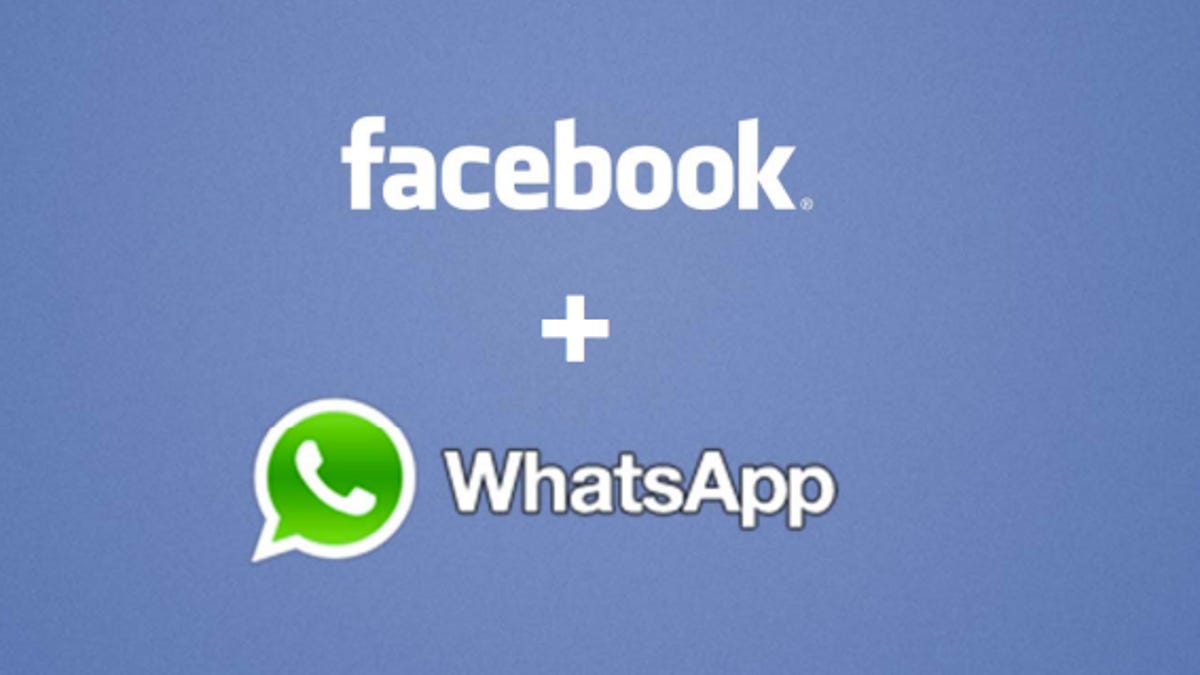Facebook's new 10-year plan? SMS -- aka WhatsApp
The social network is giving up 8 percent of the company in a deal designed to secure its future in emerging markets.

The next 10 years of Facebook won't look anything like the last 10 years, thanks in part to the landmark acquisition of mobile messaging sensation WhatsApp, a buy that will help the social network accomplish its ambitious strategy of reaching billions more people around the world.
Facebook said Wednesday that it will buy the app, which comes along with 450 million monthly active users, for $16 billion in cash and stock, and also award the startup's founders and employees with an additional $3 billion in restricted stock units (RSUs), which will take four years to vest once the deal closes. Altogether, the stock and RSUs represent 7.9 percent of Facebook shares.
The arrangement has Facebook handing over a sizable chunk of its company to WhatsApp, but that could be a small price to pay to stay atop the Internet food chain. Essentially, Facebook has turned its biggest challenger -- at least in terms of audience -- into an ally and bought itself what amounts to SMS for emerging markets.
Don't take it from this reporter, but from the man who orchestrated the deal (emphasis ours):
"WhatsApp is an extremely high quality product with incredibly strong engagement and rapid growth. It doesn't get as much attention in the US as it deserves because the community started off growing in Europe, India, and Latin America. But WhatsApp is a very important and valuable worldwide communication network," Facebook chief Mark Zuckerberg said Wednesday in a conference call on the deal. "WhatsApp is the only widely used app we've ever seen that has more engagement and a higher percentage of people using it daily than Facebook itself."
WhatsApp's engagement rate, or the ratio of daily active users to monthly active users, is an impressive 70 percent, whereas Facebook's engagement rate is around 61 percent. Better still, Zuckerberg believes WhatsApp is on the path to "reach over 1 billion people worldwide in the next few years."
Zuckerberg's logic is that ads or no ads -- and WhatsApp won't have ads, according to founder Jan Koum -- an Internet service that reaches a billion people is incredibly valuable. Currently, the focus is on growth, both Zuckerberg and Koum insisted, but WhatsApp does monetize its application by selling annual member subscriptions to the app for $1, though the first year of membership is free.
During the call, the Facebook chief's statements often echoed past remarks about the social network's 10-year plan to connect the entire planet. The plan starts with standalone apps like Messenger, Instagram, and Paper, and finishes with the goal of providing Internet access to the remaining two-thirds of people on the planet who are not connected.
The WhatsApp acquisition means that as Facebook works to spread broadband access across the world, it can also give out an extremely cheap alternative to text messaging.
"As Facebook works to connect the entire world and build the infrastructure for a global community, WhatsApp will clearly help accelerate our progress," Zuckerberg said. "People use WhatApp as a replacement for SMS."
The parallels between WhatsApp and SMS were further made in a slide deck shared with investors. Facebook said that WhatsApp's messaging volume, which stands at 19 billion messages sent per day and 34 billion received per day, is approaching the entire global SMS telecommunications volume.

